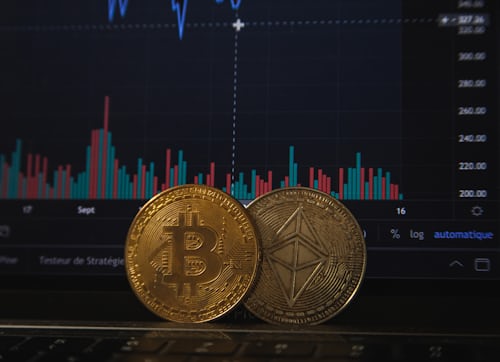At the initial public offering, i.e. the first issue of shares, the public company and the broker who accompanies the IPO determine the price of the shares. Thereafter, the price, also referred to as the price, is determined on the stock exchange by the principle of supply and demand. It is given either in euros per share or as a percentage value and is independent of the nominal value of the securities. On the stock exchange, the selling price of a share is also known as the ask price, while the buying price is known as the bid price. When trading in shares, the stock exchange ensures that a fair price is given. It receives so-called commissions for its brokerage work.
Overview of the different types of shares
The Companies Act allows companies registered as public limited companies to issue different types of shares, as the issuance of shares is also called. The main types of shares include:
- No-par-value share: represents a share in the share capital.
- Par value share: has a fixed nominal value
- Ordinary share: comes with all the rights for shareholders
- Preference share: grants the shareholder preferential rights, for example a higher dividend
- Registered share: belongs to a buyer known to the public limited company
- Bearer share: belongs to an anonymous holder
The type of share has no influence on the share price. Whether the stock market price of a share rises or falls is subject to its own rules, which are sometimes difficult to understand even for experts.
What factors determine the share price?
A stock exchange is a free market. This means that the share price is primarily determined by supply and demand. The more interested people want to buy certain shares, the higher the prices on the stock exchange in exnessbroker.net for the respective shares will be. If there are more sellers than buyers, on the other hand, the share price falls. But why are particularly many investors interested in a certain share at some times and why do several shareholders sell the same security at the same time?
Price fluctuations: Why do share prices rise and fall?
On the stock market, major price fluctuations are often observed at times of annual general meetings, i.e. when stock corporations present their annual results, causing the relationship between supply and demand to fluctuate. Also, when it is announced that a company has received a large order, this news has a positive influence on the share price development on the stock exchange. Financial scandals or legal proceedings against a well-known company, on the other hand, cause share prices to fall, as the value of the company decreases as a result.
The art of a successful stock trader is to find the optimal time to buy a security at a low price and to profit from the subsequent price increase. Since buying shares is a long-term money investment, buyers should not wait too long for the right share price. Even if a higher price is paid for a share, the expense is often offset over the years by other gains and dividends paid.
Unlike investments in a savings account or a call money account, no regular interest is paid on shares. Nevertheless, shares belong in a well-sorted portfolio, as money investors also call their securities holdings. Investing in shares is one of the long-term forms of investment. Some shareholders keep their portfolio for decades. However, they must be aware that the share price is constantly changing and that the value of the securities can fall below the purchase price. Those who sell their shares too quickly when the price falls can suffer losses that can be avoided with sufficient patience.
- Top 10 Bitcoin mixer, Blender bitcoin, Bitcoin tumbler, Bitcoin blender
- What to choose an inhaler for herbage?
- Betwinner Money Games Review
- Securitised derivatives
- 重磅官宣!开云体育携手皇马俱乐部打开数字体育领域新版图

